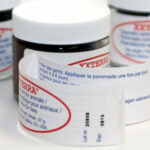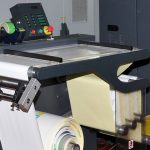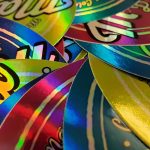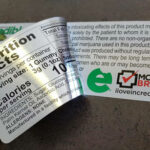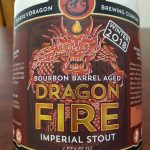Colorado converter replaces older Xeikon press with Cheetah technology as their digital business soars.
Overview
From mashing soybeans to printing sophisticated labels? Certainly, not the usual journey for a narrow web label converter, but precisely the path undertaken by LabelTec, Inc. in Fort Collins, Colorado.
Randy Hargadine’s mother and father started up cottage-industry Western Brand Tofu in 1982. His father was a retired professor and his mother a volunteer at a local food coop who enjoyed natural foods. Although they liked the idea of owning their own business, cooking tofu became quite laborious involving big pans over hot stoves. When they needed labels for their tofu containers, Randy’s mother defied common wisdom and bought an early-generation Mac computer SE with an 8-inch screen and did her own designs. At the time, labels were created with camera distortion and Randy’s mother decided to distort the artwork mathematically for a better image. When a local grocery store chain liked the look of their labels and asked them to create more for other products the Hargardines bought a tabletop one-color press. Soon, other small companies in the area began to see the labels in grocery stores and asked the Hargadines to make labels for their products as well in various die sizes and shapes.
Within a few years, labels were generating more revenue than the tofu. Randy Hargadine, president, LabelTec, recalls his father saying, “I’m good with not standing over a hot stove all day. Buy me a printing press and let’s make labels.”
And from these unusual roots, Budget Labels (later LabelTec, Inc.) was born. The Hargadines left the food industry in 1983 and pursued their passion for making high-quality labels that were designed to sell. Label printing became the company’s exclusive focus and they began by creating lots of labels for a lot of small companies.
The dedicated label business started in their garage with a two-color Allied Gear Stack Press in 1988. That same year, Randy joined the business and they moved out of the garage and into their current facility in northern Colorado. As the business grew, they bought a Comco Cadet six-color press and a Rotapress system to keep up with the growing demand. Much of the business at that point came from veterinary and large agrochemical companies which remains the backbone of their business.
Today, the $4 million business has loyal customers in the Agricultural, Food & Beverage, Health & Beauty, Nutraceuticals, Medical, Craft Beers and Spirits and most recently, Cannabis, segments. The company also offers flexographic printing for booklet labels, metallic labels and stickers, peel-back and specialty labels.
According to Randy, LabelTec’s growth has been based squarely on outstanding service. “Our turnaround is as good as any in the industry — almost always within five working days. Our 5,000 square foot warehouse is loaded up because we focus on custom jobs and inventory a wide variety of substrates, dies, adhesives and liners. And since 2001 – we do just about everything in-house. If something goes wrong we can fix it within an hour on the flexo press and in even less time on the Xeikon. We like to say, ‘Get the order, get it done right, and get it out the door.’”
The Challenge
Since its beginnings, the LabelTec team has used their skills, careful methods, and industry-leading technology to create high-quality labels. When medical-use cannabis was legalized in Colorado in 2000, followed by recreational usage in 2012, Randy was quick to focus on the new market segment in order to grow the business started by his parents. As Colorado experienced booming growth in cannabis and craft beverages, LabelTec’s business grew exponentially. Paul Mullaly, VP, joined LabelTec in 2014 and encouraged Randy to investigate purchasing a digital press to further diversify their market segments.
A digital solution would provide excellent quality to meet short lead times, multiple SKUs and small quantities. So in 2016, LabelTec purchased a reconditioned Xeikon 3300. They went with a Xeikon press because it offered less downtime and better success stories from Randy and Paul’s peers in the industry. They could achieve a similar look on their flexo press and could go back and forth between presses. And Xeikon’s FDA-certified food-safe dry toner — e.g. no hazardous substances would migrate to foodstuffs — was a definite plus, especially in some of the end-use segments they serve.
According to Paul, “We needed a good price, outstanding service and premium quality. Xeikon met all three requirements.”
One of their flexo press assistants went to Xeikon Basic Operator Training (BOT) to learn how to operate the new press. According to Randy, “He took it, grabbed it, and understood it. He had no real knowledge of flexo or digital printing – he’s just a sharp guy. Xeikon was instrumental in answering every question and helping us to get started.”
With their digital press, LabelTec began printing a lot of nutraceutical labels and small beer runs with multiple SKUs. Paul notes, “In order to get into the craft beer market with flexo, we had to eat the cost of many flexo plates. Now we no longer have to do that. Cannabis is made up of smaller start-up producers, so we were only printing one to two thousand labels. We would never have been able to compete if we didn’t have a digital press.”
Randy adds, “With our Xeikon 3300, we are able to duplicate a lot of what we were doing on flexo and provide a consistent look to our customers. With its excellent color-matching capabilities, for example, we can achieve the same look on the same substrates.”
Today LabelTec retains a lot of their sophisticated, custom jobs (e.g. peel back labels) on their 12 color flexo press while printing high quality, short-run labels on their Xeikon 3300. And while that press enabled them to cost-effectively enter the digital market, as their digital business grew LabelTec started to see the need to upgrade to a print engine that was at least 50% faster and offered more quality features.
The Solution
In developing the right solution for LabelTec’s press upgrade, Xeikon focused on new technology features such as improved left to right color stability, improved and faster substrate conditioning prior to printing, better serviceability and the highest possible OEE (Overall Equipment Effectiveness). This combination would enable LabelTec to improve their quality, grow their customer base and run more flexo jobs digitally with a lower cost crossover point. LabelTec also liked the fact that Xeikon offered a complete solution including finishing – all from one supplier.
The proposed solution is a Xeikon CX300 dry toner label press with a Mini Dcoat 330 die-cut and varnish finisher. The CX300, part of the Xeikon “Cheetah” series, offers LabelTec faster-running speeds, lower operating costs & flexibility to meet complex customer demands without compromising quality, reliability or consistency – whatever the label or volume. And the mini Dcoat 330, the latest generation of digital label finishing machines, features new electronics, a newly-designed control panel and updated user interface. Its small footprint minimizes waste and maximizes productivity. It provides UV flexo varnish, lamination, super-gloss, cold-foil, die-cutting and slit and rewind on one single compact platform.
Paul and Randy visited Xeikon’s CIC (Customer Innovation Center) in Itasca, Illinois in February 2021, to “kick the tires” and see their jobs run on the Mini Dcoat 330.The technical experts at the CIC ran 13very challenging jobs, without any advance prepping, to demonstrate the full range of capabilities and so that LabelTec could see first hand what to expect in actual production.
The Outcome
LabelTec’s business – both in-person and online – saw significant growth in 2020. In addition to regional customers, the company’s labels are on agricultural and cannabis products around the world. Randy notes, “We’re very happy with our current Xeikon press and know what we’re getting will be even better. And with the mini D-Coat, we’ll be able to keep growing and reduce overtime pay!”
According to Paul, “We are looking forward to bringing in more business to put on the CX300 to really utilize the increased speed and extra capacity. We’re very happy with the profit margins that we’re yielding at this point in time with our digital program, and we’re looking forward to a newer, faster machine, with a faster semi-rotary die cutter.”
As to which markets they’ll now pursue, Randy responds unequivocally, “ALL of them. We can partner with any business in any market segment!”
The new equipment is set to install Q2 2021.

